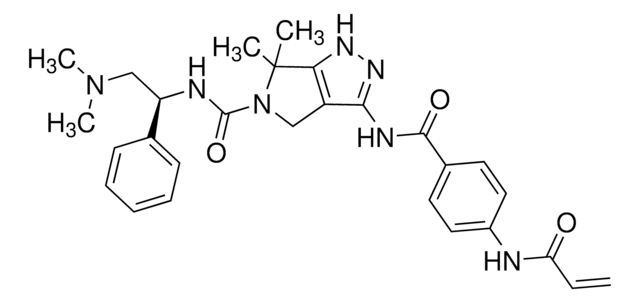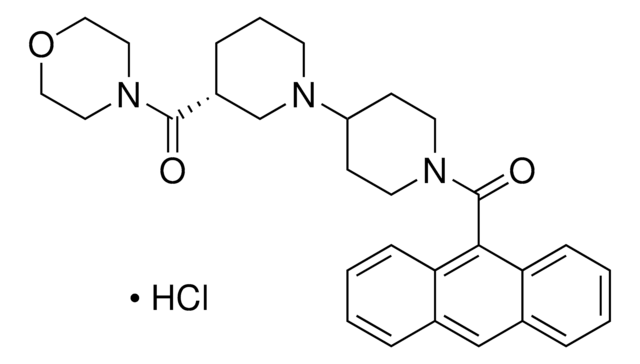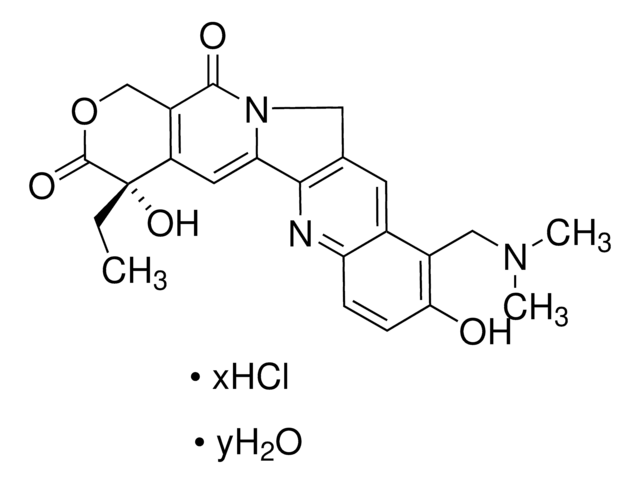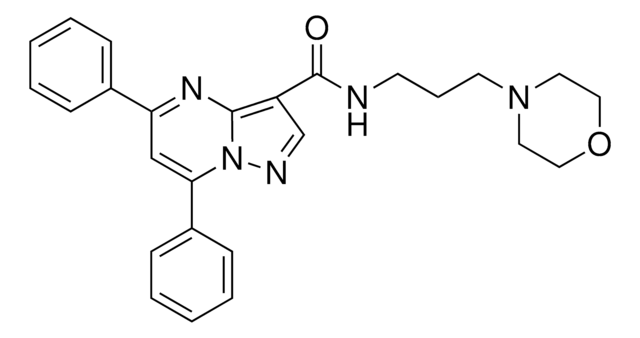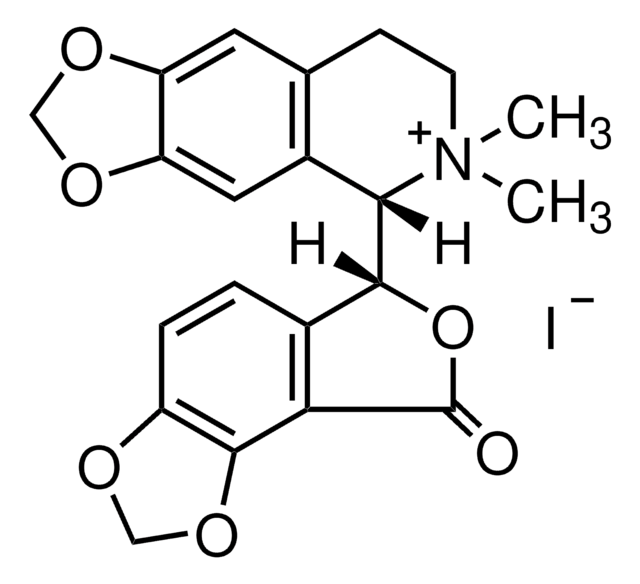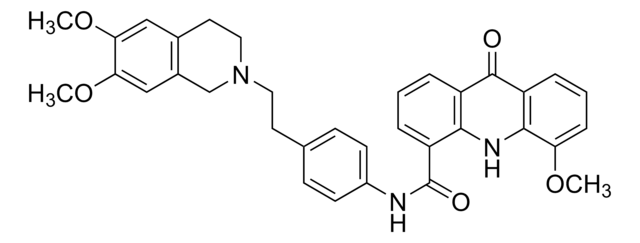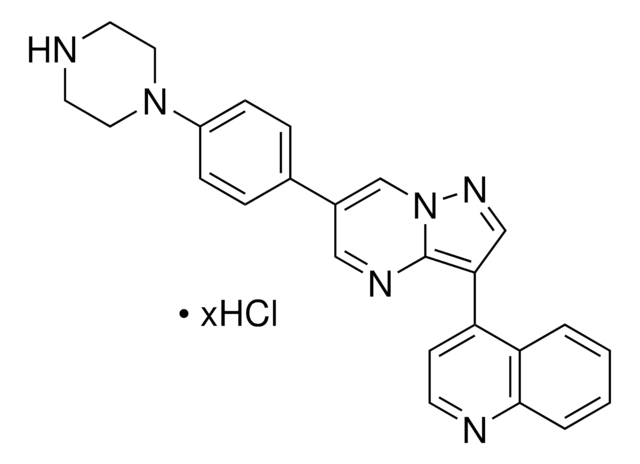SML2179
LDC000067 hydrochloride
≥98% (HPLC)
Sinónimos:
3-((6-(2-Methoxyphenyl)pyrimidin-4-yl)amino)phenyl)methanesulfonamide hydrochloride, 3-[[6-(2-Methoxyphenyl)-4-pyrimidinyl]amino]-benzenemethanesulfonamide, LDC067
About This Item
Productos recomendados
Ensayo
≥98% (HPLC)
Formulario
powder
condiciones de almacenamiento
protect from light
color
white to beige
solubilidad
DMSO: 2 mg/mL, clear (warmed)
temp. de almacenamiento
−20°C
cadena SMILES
O=S(CC1=CC(NC2=NC=NC(C3=CC=CC=C3OC)=C2)=CC=C1)(N)=O
InChI
1S/C18H18N4O3S/c1-25-17-8-3-2-7-15(17)16-10-18(21-12-20-16)22-14-6-4-5-13(9-14)11-26(19,23)24/h2-10,12H,11H2,1H3,(H2,19,23,24)(H,20,21,22)
Clave InChI
GGQCIOOSELPMBB-UHFFFAOYSA-N
Acciones bioquímicas o fisiológicas
Código de clase de almacenamiento
11 - Combustible Solids
Clase de riesgo para el agua (WGK)
WGK 3
Punto de inflamabilidad (°F)
Not applicable
Punto de inflamabilidad (°C)
Not applicable
Elija entre una de las versiones más recientes:
Certificados de análisis (COA)
It looks like we've run into a problem, but you can still download Certificates of Analysis from our Documentos section.
Si necesita más asistencia, póngase en contacto con Atención al cliente
¿Ya tiene este producto?
Encuentre la documentación para los productos que ha comprado recientemente en la Biblioteca de documentos.
Nuestro equipo de científicos tiene experiencia en todas las áreas de investigación: Ciencias de la vida, Ciencia de los materiales, Síntesis química, Cromatografía, Analítica y muchas otras.
Póngase en contacto con el Servicio técnico